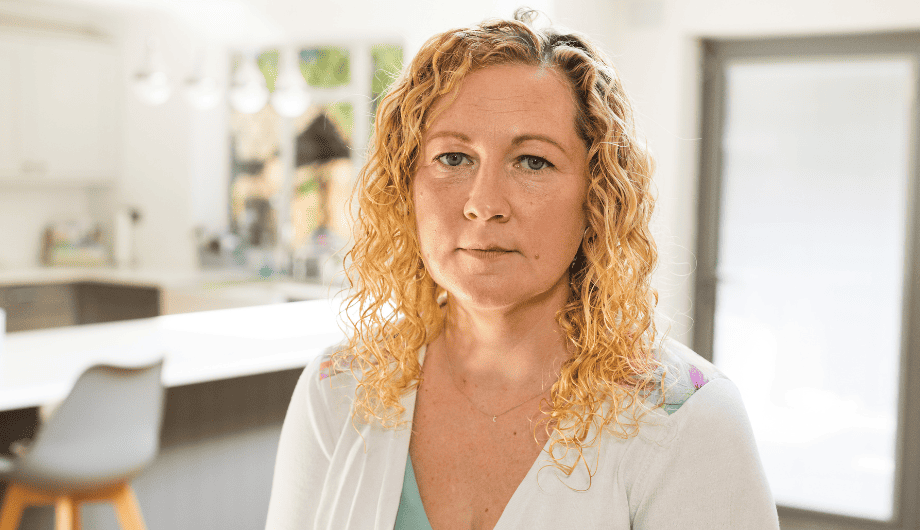
Saïna’s story – A song for my beloved grandpa, Ralph
Saïna opens up about how her grandfather’s dementia has affected her, and how songwriting has provided a release.
Moving into a care home can be daunting for a person with dementia and their family and friends – but preparing well can make the transition easier.
People with dementia might need to move into a residential care home for various reasons, such as:
Choosing a care home can feel overwhelming, but finding the right place can provide vital social contact for the person with dementia and improve everyone’s quality of life.
Try to plan ahead and involve the person with dementia – they may not have the mental capacity to make their own decision, but their views should be considered.
These steps can help guide your decision-making.
You can request a list of local care homes from Social Services or The Elderly Accommodation Counsel.
It’s helpful to make a checklist of what to look for when shortlisting and visiting care homes.
Consider things like:
Age UK has a guide to making a checklist.
The Care Quality Commission (CQC) is responsible for inspecting and rating care homes. Checking each care home’s CQC report will show you what they do well – and less well.
Visiting a home in person is essential to see how they care for people and gauge whether your family member would be happy there.
It’s important to phone or email to book a visit to ensure a staff member is available to show you round. You could, however, arrive a little earlier to observe the daily life of the home and get a true feel for it.
Whether the home you’re considering is a general care home or specialises in dementia care, it is important to find out how they meet the needs of people with dementia.
Find out how many carers are trained in dementia care and at what level, and ask to talk to some of the staff who have dementia care experience.
Also, try to speak to other families who have a relative with dementia in the care home – they can often share valuable insights.
Most care homes will visit your relative at home or in hospital or invite them to visit the home before they move in.
Ask to speak to the staff member who does this and give them as much information about the person as possible so they can help them settle in.
You could do this by compiling a record of their life, called a ‘life story’.
You could also consider arranging a short respite stay in the care home first – this can ease the transition, and if things work out, the person may be content to stay long-term.
Sometimes, people with dementia may be reluctant to leave their own home or have forgotten the arrangement, so it’s important to try to reduce their anxieties.
These tips may help.
Some people with dementia settle quickly into a care home, while others need longer to adjust – this is different for everyone.
Some care homes ask families not to visit for the first week or so to enable the person to settle in and prevent them thinking that you have come to take them home. However, for other people, visiting frequently may be the best approach.
Encourage the person to get to know other residents – for example, by spending time in communal areas – and join in activities.
Keep in mind that this is a partnership between your family and the care home. Families are vital in helping staff build a care plan for the person and giving them advice on how to meet their needs.
It is natural to find things difficult when your family member moves into a care home.
You may feel you have ‘lost’ the person, let them down or given up on them. You may also feel guilty if you’re relieved about being released from your caring role.
And you might feel lonely and isolated without the person around, and if regular contact with their health and social care professionals has stopped.
These feelings are normal, so it’s important that you have support from family, friends and professionals at this time.
Try to resume activities and clubs that you enjoyed before you were a carer, or try new ones where you can meet new friends.
Keep in mind that although you are no longer the person’s main carer, your relationship with them is just as important – and being relieved of some of your caring responsibilities may make your time together more enjoyable and less stressful.
Sometimes, concerns may arise about how the person with dementia is being cared for. If so, you could follow this process:
If you believe there is a safety risk, abuse, harm or neglect, you can raise this with the Care Quality Commission (in England), Care Social Services Inspectorate Wales, Care Inspectorate (in Scotland) or Regulation Quality Improvement Authority (in Northern Ireland).
These organisations do not investigate individual complaints, but if there are safeguarding issues, they may refer these to the local council or police for further investigation.
To speak to a dementia specialist Admiral Nurse, please call our free Dementia Helpline on 0800 888 6678 (Monday-Friday 9am-9pm, Saturday and Sunday 9am-5pm, every day except 25th December), email helpline@dementiauk.org or you can pre-book a phone or video call with an Admiral Nurse.
Our virtual clinics give you the chance to discuss any questions or concerns with a dementia specialist Admiral Nurse by phone or video call, at a time that suits you.

Saïna opens up about how her grandfather’s dementia has affected her, and how songwriting has provided a release.

Ricky’s talks about how his Gran’s dementia diagnosis impacts his whole family and why he is supporting the ‘We live with dementia’ campaign.

As a carer for her mum, who has vascular dementia, Clare is taking part in our ‘We live with dementia’ campaign to make more people aware of the support our nurses offer.